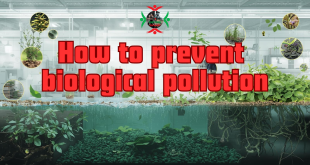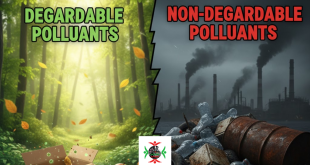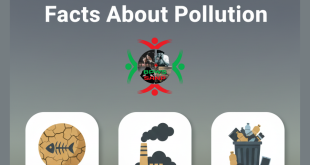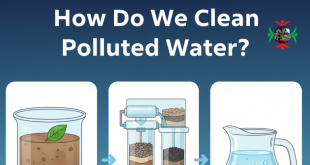
The Devastating Impact of Plastic Pollution in Bangladesh is a growing environmental crisis. It significantly impacts health, wildlife, and the economy.
Bangladesh faces a severe plastic waste problem. Streets, rivers, and oceans are littered with plastic, causing extensive damage. This pollution harms marine life and disrupts ecosystems. Local communities suffer from health issues due to contaminated water and food sources. The economic costs are high, affecting tourism and fishing industries.
Government and organizations strive to combat this crisis through various initiatives. Public awareness campaigns and stricter regulations are essential. Every individual’s effort counts in reducing plastic use. Sustainable practices and proper waste management can help mitigate this hidden crisis. Immediate action is crucial to protect Bangladesh’s environment and future generations.
Historical Context
The story of plastic pollution in Bangladesh starts with its history. Understanding the historical context helps us see how plastic use has evolved. Let’s dive into the timeline of plastic usage in Bangladesh.

www.researchgate.net
Early Plastic Use
Plastic first appeared in Bangladesh in the late 20th century. It was seen as a marvel of modern science. People loved its durability and versatility. Early uses included household items and packaging materials. Plastic made life easier for many. But people were not aware of its long-term effects.
During this period, there was no proper waste management. People would often throw plastic items away carelessly. This led to the beginning of environmental issues related to plastic. The problem was small but started growing.
Growth In Consumption
Over the years, plastic consumption increased rapidly. The economic boom in the 1990s played a big role. More people could afford plastic products. Industries produced more plastic goods. This created a cycle of high demand and supply.
The fashion industry also contributed to plastic use. Synthetic fibers, like polyester, became popular. These fibers are made from plastic and are used in clothes. The food industry saw a rise in plastic packaging. This was done to keep food items fresh for longer. But it also added to the waste problem.
Here is a table showing the growth in plastic consumption over the years:
| Year | Plastic Consumption (tons) |
|---|---|
| 1990 | 5,000 |
| 2000 | 20,000 |
| 2010 | 50,000 |
| 2020 | 100,000 |
This table shows how plastic use has skyrocketed. The numbers tell a worrying story. Plastic waste became a significant issue. The environment started suffering.
By understanding the historical context, we see how deep-rooted this problem is. Awareness is the first step to solving the crisis.
Current State Of Plastic Pollution
Plastic pollution is a growing problem in Bangladesh. The country’s water bodies, streets, and even rural areas are inundated with plastic waste. This environmental crisis is impacting health, wildlife, and the economy.

Statistics And Figures
Bangladesh generates over 800,000 metric tons of plastic waste annually. Around 36% of this waste remains uncollected and ends up in the environment. The following table highlights some alarming statistics:
| Category | Figure |
|---|---|
| Total plastic waste generated | 800,000 metric tons |
| Uncollected plastic waste | 36% |
| Plastic waste in urban areas | 63% |
The majority of plastic waste ends up in rivers and oceans. This leads to severe water pollution and affects marine life.
Regional Hotspots
Some regions in Bangladesh are more affected by plastic pollution than others. The following areas are considered hotspots:
- Dhaka: The capital city generates the most plastic waste. Streets and water bodies are heavily polluted.
- Chittagong: This port city has a significant problem with plastic waste in coastal areas.
- Khulna: The Sundarbans, a UNESCO World Heritage Site, is threatened by plastic waste.
Efforts to manage plastic waste in these regions are ongoing. Public awareness and government initiatives are crucial for mitigation.
Environmental Impact
Plastic pollution in Bangladesh is a growing crisis. It affects the environment severely. The impact extends to marine ecosystems and soil health.

Marine Ecosystems
Plastic waste harms marine life. Fish, turtles, and birds mistake plastic for food. This causes injury or death. The water quality also suffers. Pollutants from plastics poison the water. Coral reefs are affected too. They are vital for marine biodiversity. Damaged reefs cannot support marine life.
| Marine Animal | Impact |
|---|---|
| Fish | Ingestion of plastic |
| Turtles | Entanglement and ingestion |
| Birds | Ingestion of plastic |
Microplastics are another issue. These tiny particles enter the food chain. Humans consume seafood contaminated with microplastics. This poses health risks.
Soil Degradation
Plastic waste also affects the soil. It reduces soil fertility. Farmers struggle to grow crops. The soil’s ability to hold water decreases. This leads to poor crop yields.
- Plastic waste blocks water absorption.
- Soil becomes less aerated.
- Microplastics alter soil chemistry.
These changes harm plant growth. They also affect soil organisms. Earthworms and bacteria cannot thrive. This disrupts the natural balance of the soil ecosystem.
Plastic pollution is a hidden crisis. Its impact on the environment is devastating. Addressing it is crucial for Bangladesh’s future.
Health Risks
Plastic pollution in Bangladesh is a serious issue. It affects many aspects of life. The health risks are particularly alarming. Both humans and animals suffer due to plastic waste. Let’s explore these health risks in detail.

sustainability.evccblogs.com
Human Health
Plastic waste affects human health in many ways. People often burn plastic to get rid of it. This releases toxic chemicals into the air. Breathing these chemicals can cause serious illnesses. Asthma, lung diseases, and cancer are common results.
Contaminated water is another major issue. Plastic waste clogs drainage systems. This leads to water stagnation and pollution. People drinking this water face severe health risks. Diarrhea and cholera are frequent problems.
Plastic also affects the food we eat. Fish and other sea animals ingest plastic particles. When people eat these animals, they consume plastic too. This leads to digestive issues and other health problems.
Animal Health
Animals suffer greatly due to plastic pollution. Many animals mistake plastic for food. Consuming plastic can block their digestive systems. This often leads to death. Cows, goats, and fish are commonly affected.
Marine animals are at high risk. Turtles and fish often get entangled in plastic waste. This restricts their movement. It can cause injuries and death. Birds are also affected. They often use plastic to build nests. This can harm their chicks.
Plastic pollution also disrupts the food chain. Animals that ingest plastic often die. Their predators lose a food source. This affects the entire ecosystem.
| Health Risk | Human Impact | Animal Impact |
|---|---|---|
| Air Pollution | Asthma, Lung Diseases, Cancer | Respiratory Issues |
| Water Pollution | Diarrhea, Cholera | Habitat Loss |
| Food Contamination | Digestive Issues | Death by Ingestion |
Economic Consequences
Plastic pollution in Bangladesh brings severe economic consequences. The nation’s economy suffers in various ways. The cleanup costs and the impact on fisheries are two critical areas. These areas highlight the economic burden caused by plastic waste.

innovation.luskin.ucla.edu
Cost Of Cleanup
The cost of cleaning up plastic waste is enormous. The government spends millions of dollars each year. Local communities also bear the brunt of these expenses.
- Municipalities allocate significant budgets for cleanup operations.
- Local businesses face disruptions and increased costs.
- Taxpayers indirectly pay for these ongoing efforts.
These costs divert funds from essential services. Education, healthcare, and infrastructure projects suffer as a result.
Impact On Fisheries
The fishing industry is a vital part of Bangladesh’s economy. Plastic pollution severely impacts fisheries. Fish populations decline due to contaminated waters.
| Impact | Details |
|---|---|
| Fish mortality | Plastic waste suffocates marine life. |
| Reduced catch | Fishermen catch fewer fish. |
| Lower income | Fishermen earn less due to reduced catch. |
Declining fish stocks lead to higher prices. Consumers pay more for seafood. This affects the purchasing power of the average household.
Government Policies
The government of Bangladesh has made efforts to tackle plastic pollution. These policies aim to curb the environmental impact caused by excessive plastic use. Understanding these policies is key to addressing this hidden crisis.

Existing Regulations
Bangladesh has implemented several laws to control plastic pollution. The Plastic Waste Management Rules were introduced in 1995. These rules mandate proper disposal and recycling of plastic waste.
In 2002, Bangladesh became the first country to ban plastic bags. This ban aimed to reduce the single-use plastic, which clogs drains and rivers.
| Year | Regulation | Purpose |
|---|---|---|
| 1995 | Plastic Waste Management Rules | Ensure proper disposal and recycling |
| 2002 | Plastic Bag Ban | Reduce single-use plastic |
Policy Gaps
Despite these regulations, challenges remain. One major gap is the lack of enforcement. Many people still use plastic bags despite the ban.
There is also a need for better recycling infrastructure. Many areas lack facilities for proper plastic waste management.
- Enforcement of existing laws
- Improvement of recycling infrastructure
- Public awareness campaigns
Addressing these gaps can significantly reduce plastic pollution in Bangladesh. The government must take active steps to close these policy gaps.
Grassroots Movements
Grassroots movements in Bangladesh are tackling the hidden crisis of plastic pollution. These movements are led by local communities and activists. They aim to clean their environment and raise awareness.
Community Initiatives
Local communities in Bangladesh have launched various initiatives. They organize clean-up drives along rivers and beaches. Schools also participate in these drives. These events help to remove plastic waste.
Another initiative involves recycling programs. Community members collect plastic waste. They then send it to recycling centers. This helps reduce the amount of plastic in landfills.
Some communities have started using alternative materials. These materials are eco-friendly and biodegradable. They replace single-use plastics in daily life. This reduces the overall plastic waste.
| Initiative | Description |
|---|---|
| Clean-up Drives | Organized events to remove plastic waste from public spaces. |
| Recycling Programs | Collection and recycling of plastic waste by community members. |
| Use of Alternatives | Promotion of eco-friendly, biodegradable materials. |
Success Stories
Success stories from these initiatives provide hope. One village reduced plastic waste by 50%. They did this through clean-up drives and recycling.
Another success is a school that stopped using plastic bottles. They now use reusable metal bottles. This change has inspired other schools to follow.
A coastal town replaced plastic bags with jute bags. This change helped reduce plastic pollution. It also supported local jute farmers.
- Village reduced plastic waste by 50%.
- School switched to reusable metal bottles.
- Coastal town adopted jute bags.
These grassroots movements show that change is possible. They inspire others to join the fight against plastic pollution.
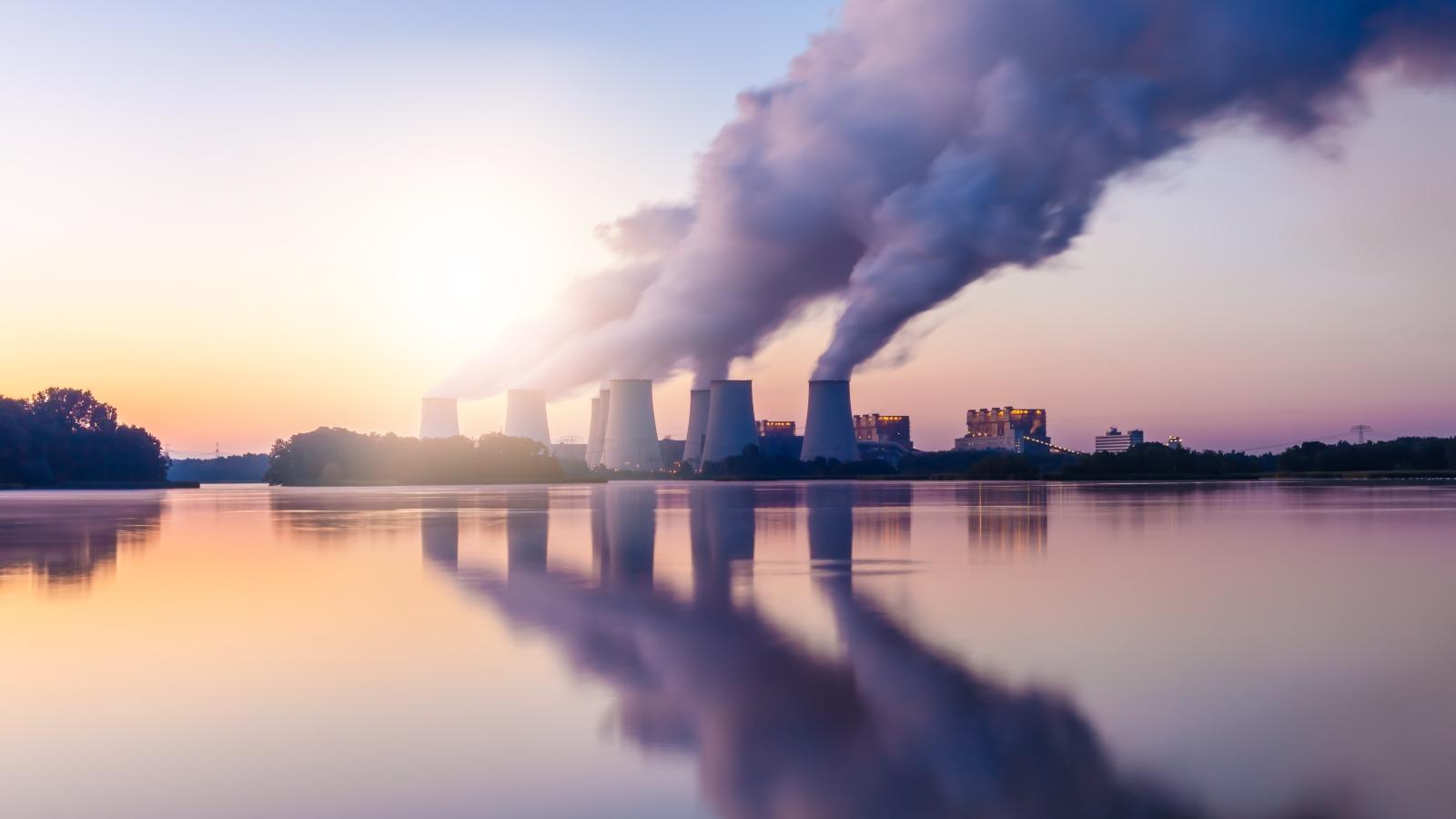
Credit: www.pwc.com
Corporate Responsibility
Corporate responsibility is crucial in addressing plastic pollution in Bangladesh. Companies can help reduce waste and promote sustainability. Their actions can make a big impact on the environment and society.
Corporate Practices
Many companies in Bangladesh are adopting eco-friendly practices. They are using biodegradable materials and reducing plastic use. Some are also investing in recycling programs and waste management systems.
- Reducing Plastic Packaging: Several companies are opting for minimal packaging.
- Promoting Reusable Products: Encouraging customers to use reusable bags and bottles.
- Recycling Initiatives: Implementing systems to recycle plastic waste efficiently.
These practices not only reduce plastic waste but also educate the public. They help raise awareness about the importance of sustainability.
Case Studies
Several companies in Bangladesh have set examples with their efforts. Here are two notable case studies:
| Company | Initiative | Impact |
|---|---|---|
| ABC Corp | Plastic-free packaging | Reduced plastic waste by 40% |
| XYZ Ltd | Recycling program | Recycled 10 tons of plastic |
ABC Corp switched to plastic-free packaging. This change reduced their plastic waste by 40%. XYZ Ltd started a recycling program. They recycled 10 tons of plastic in one year.
These case studies show how corporate responsibility can lead to positive changes. They inspire other companies to adopt similar practices.
Innovative Solutions
Plastic pollution in Bangladesh is a pressing issue. Innovative solutions are essential to combat this crisis. Communities and organizations are adopting various strategies to tackle the problem. This section explores these innovative solutions.
Recycling Programs
Recycling programs are a crucial part of the solution. They help reduce waste by converting used materials into new products. This reduces the need for raw materials and decreases pollution.
Many local organizations are setting up recycling centers. These centers collect, sort, and process plastic waste. Schools and communities are also participating in recycling drives. These drives encourage people to recycle their plastic waste regularly.
Here is a table showing the benefits of recycling programs:
| Benefits | Details |
|---|---|
| Reduces Waste | Lowers the amount of plastic in landfills |
| Saves Resources | Decreases the need for new raw materials |
| Creates Jobs | Provides employment opportunities in recycling centers |
Biodegradable Alternatives
Using biodegradable alternatives can significantly reduce plastic pollution. These materials break down naturally and do not harm the environment.
Many companies are now producing biodegradable products. These include items like packaging, utensils, and bags. These products decompose faster than traditional plastics.
Here are some common biodegradable alternatives:
- Plant-based plastics made from corn or sugarcane
- Papers and cardboard for packaging
- Compostable bags for groceries and waste
Using these alternatives helps reduce the amount of plastic waste. They also promote a healthier environment for future generations.
Educational Campaigns
Plastic pollution is a serious issue in Bangladesh. To tackle this, various educational campaigns have been launched. These campaigns aim to raise awareness and educate the public. They target different age groups and communities. This section will discuss some key initiatives under the subheadings Awareness Programs and School Initiatives.

saveourshores.org
Awareness Programs
Awareness programs focus on educating the general public. They use various methods to reach people. Some common methods include:
- Workshops and Seminars
- Street Plays and Dramas
- Social Media Campaigns
Workshops and seminars are held in community centers. Experts talk about the impact of plastic pollution. They provide tips on reducing plastic use. Street plays and dramas are also effective. They are performed in crowded places. These plays tell stories about the harms of plastic pollution.
Social media campaigns are gaining popularity. They use platforms like Facebook and Twitter. They share facts, videos, and infographics. These campaigns reach a large audience quickly. They encourage people to change their habits. They also share success stories from different regions.
School Initiatives
Schools play a crucial role in educational campaigns. They target young minds. They help to shape future generations. Some key school initiatives include:
- Eco-Clubs
- Workshops and Competitions
- Plastic-Free Campus Projects
Many schools have formed eco-clubs. These clubs involve students in environmental activities. They organize clean-up drives and tree-planting events. Workshops and competitions are also common. They educate students about plastic pollution. They encourage students to come up with solutions.
Plastic-Free Campus Projects are another initiative. Schools aim to reduce plastic use on their premises. They ban single-use plastics. They promote the use of reusable items. These projects create a culture of sustainability among students.
| Method | Description |
|---|---|
| Workshops | Interactive sessions to educate about plastic pollution. |
| Street Plays | Performances in public spaces to raise awareness. |
| Social Media | Online campaigns to share information and tips. |
These initiatives are vital. They educate people about the dangers of plastic pollution. They inspire them to take action. By working together, we can make a difference.
International Influence
Plastic pollution in Bangladesh has reached alarming levels. It’s a crisis affecting both the environment and public health. International influence plays a crucial role in addressing this issue. Various global agreements and foreign aid initiatives contribute significantly to tackling this crisis.
Global Agreements
Global agreements aim to reduce plastic pollution worldwide. Bangladesh is a signatory to several international treaties. These agreements include the Basel Convention and the Stockholm Convention. Both conventions focus on managing hazardous waste and chemicals.
Under these treaties, countries commit to reducing plastic waste exports. They also work on improving waste management practices. Cooperation through these agreements strengthens Bangladesh’s efforts. It ensures better compliance with international standards.
Foreign Aid
Foreign aid plays a crucial role in combating plastic pollution in Bangladesh. Several countries and organizations provide financial and technical support. These aids help in implementing effective waste management systems.
For instance, the World Bank and the United Nations have funded various projects. These projects focus on improving recycling infrastructure. They also promote community awareness and education on plastic waste.
Foreign aid also supports research and development. It helps in finding innovative solutions to reduce plastic pollution. Through these efforts, Bangladesh can adopt more sustainable practices.
Here’s a quick overview of international support:
| Organization | Type of Support | Impact |
|---|---|---|
| World Bank | Financial | Improved Recycling Infrastructure |
| United Nations | Technical | Community Awareness |
| Basel Convention | Policy | Reduced Plastic Waste Exports |
| Stockholm Convention | Policy | Better Waste Management Practices |
These international efforts are vital for Bangladesh. They help in mitigating the devastating impact of plastic pollution.

Credit: www.linkedin.com
Technological Advances
The fight against plastic pollution in Bangladesh has seen remarkable technological advances. These technologies aim to reduce and manage plastic waste. They also offer sustainable alternatives to traditional plastics.
Waste Management Tech
Waste management technology plays a crucial role in managing plastic waste. Several innovative solutions have been developed to address this issue:
- Smart bins that sort and compact waste automatically.
- Recycling plants equipped with advanced machinery.
- Mobile apps that educate people about proper waste disposal.
These technologies help in reducing the amount of plastic waste that ends up in landfills and water bodies.
Plastic Alternatives
Creating plastic alternatives is another major technological advancement. These alternatives are eco-friendly and biodegradable:
- Biodegradable plastics made from plant-based materials.
- Reusable containers made from bamboo and glass.
- Edible packaging that decomposes naturally.
These alternatives reduce the dependency on single-use plastics. They also help in minimizing environmental impact.
Technological advances are crucial in combating plastic pollution. They offer innovative ways to manage waste and create sustainable products.

Future Projections
Plastic pollution in Bangladesh is a growing concern. It affects the environment, wildlife, and human health. Understanding future projections is crucial. This helps us prepare and take action. Let’s explore some key future trends and potential scenarios.
Long-term Trends
Experts predict a significant increase in plastic waste. By 2050, plastic waste could double. This is due to population growth and increased consumption. Urban areas will face the most pressure.
Plastic waste management systems are currently inadequate. They may not keep up with the rising waste. This will lead to more pollution in rivers and oceans. Marine life will suffer greatly.
Recycling rates are expected to improve. Yet, they may not be enough to handle the surge in waste. Public awareness and policy changes are crucial. These can help mitigate the long-term impact of plastic pollution.
Potential Scenarios
We can imagine two potential scenarios for the future. The first scenario involves taking immediate action. This includes improving waste management systems. It also involves strict regulations on plastic production and usage.
In this scenario, plastic pollution could be reduced significantly. Wildlife and ecosystems would recover. Human health risks would decrease. Economic benefits would arise from a cleaner environment.
The second scenario involves inaction. Here, plastic pollution continues to rise unchecked. Rivers and oceans become increasingly polluted. Marine life faces extinction. Human health risks increase due to contaminated water and food.
Economic costs will soar due to environmental degradation. Tourism and fishing industries will suffer. The burden on healthcare systems will increase.
| Scenario | Key Actions | Outcomes |
|---|---|---|
| Immediate Action |
|
|
| Inaction |
|
|
Understanding these future projections is vital. It helps us grasp the severity of the plastic pollution crisis in Bangladesh. Taking action now can ensure a cleaner, healthier future for all.
Call To Action
The fight against plastic pollution in Bangladesh needs your help. This crisis affects our health and environment. To make a difference, we all need to take action.
How To Get Involved
Everyone can help reduce plastic pollution. Here are a few ways:
- Participate in local clean-up drives.
- Advocate for policy changes.
- Support businesses that use eco-friendly packaging.
Each small action adds up. Together, we can make a big impact.
Steps For Change
Follow these steps to start making a difference today:
- Reduce plastic use: Choose reusable bags, bottles, and containers.
- Recycle properly: Separate your waste and recycle plastics.
- Educate others: Spread awareness about plastic pollution in your community.
Remember, change starts with you. Take these steps and inspire others to join you.
| Action | Impact |
|---|---|
| Use reusable items | Reduces plastic waste |
| Recycle | Saves resources |
| Educate | Increases awareness |
Your efforts can help save Bangladesh from the plastic crisis. Get involved today!
Frequently Asked Questions
How Does Plastic Pollution Affect Bangladesh?
Plastic pollution in Bangladesh clogs waterways, harms marine life, and impacts human health. It also threatens tourism and fishing industries.
What Is The Biggest Impact Of Plastic Pollution?
The biggest impact of plastic pollution is the harm to marine life. Animals ingest or get entangled in plastic waste, leading to injury or death. This disrupts ecosystems and food chains, affecting human health and economies.
What Is The Plastic Pollution Crisis?
The plastic pollution crisis involves the massive accumulation of plastic waste in the environment. It harms wildlife, disrupts ecosystems, and contributes to climate change. Reducing plastic use and improving waste management are essential to addressing this urgent problem.
Which Country Is Most Affected By Plastic Pollution?
China is the country most affected by plastic pollution. It generates the highest amount of plastic waste globally.
What Is Plastic Pollution In Bangladesh?
Plastic pollution in Bangladesh refers to the accumulation of plastic waste in the environment, harming wildlife and ecosystems.
Conclusion
Plastic pollution in Bangladesh is a growing crisis. Immediate action is needed to protect the environment and public health. Reducing plastic use and improving waste management can make a significant difference. Join the movement to combat plastic pollution and safeguard Bangladesh’s future.
Your efforts today will shape a cleaner, healthier tomorrow.
 Prevention from Suicide, Addiction, Narcotics and Pollution. Withdrawal and Recovery Facts of Narcotics | Symptoms of Suicidal thoughts & Ideations | Effects of Environment Pollution | Understand Addiction withdrawal
Prevention from Suicide, Addiction, Narcotics and Pollution. Withdrawal and Recovery Facts of Narcotics | Symptoms of Suicidal thoughts & Ideations | Effects of Environment Pollution | Understand Addiction withdrawal

